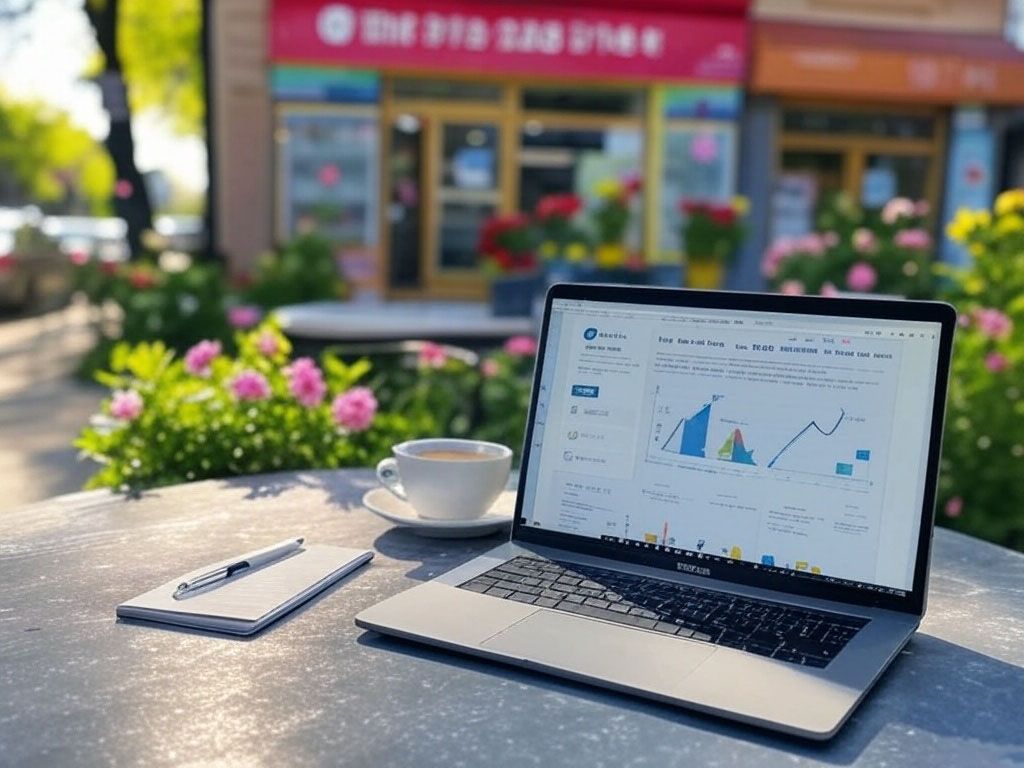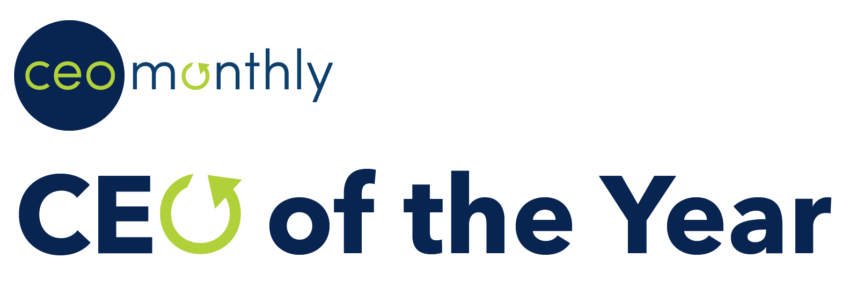Measuring SEO ROI: 5 Key Strategies for Local SEO Lead Generation
In today's digital landscape, businesses are increasingly recognizing the importance of local SEO lead generation as a means to enhance their visibility and drive conversions. Understanding and measuring the return on investment (ROI) from SEO efforts is essential to justify expenditures and strategize future campaigns. This article explores the fundamental aspects of measuring SEO ROI, the challenges involved, and effective strategies to optimize local SEO for lead generation.
What is SEO ROI and Why is it Important for Lead Generation?
Understanding the ROI of SEO in Local Markets
The SEO ROI refers to the financial return derived from investments made in SEO efforts, particularly in local markets. For businesses targeting local customers, local SEO becomes paramount, as it focuses on optimizing online presence to attract users in specific geographical areas. This targeted approach not only enhances visibility in search engine results but also increases the likelihood of conversion, making it a vital aspect of lead generation. Understanding the ROI of SEO helps businesses allocate resources effectively, ensuring that their marketing budgets are spent wisely while maximizing lead generation opportunities.
How to Measure the ROI of Your SEO Efforts
Measuring the ROI of your SEO efforts involves a systematic analysis of various metrics that reflect the effectiveness of your SEO campaign. The first step is to calculate the total cost of your SEO investment, including expenses related to SEO services, tools, and personnel. Next, it’s crucial to track organic traffic and leads generated from search engine results. By comparing the revenue generated from these leads against the costs associated with your SEO campaign, you can accurately assess the ROI. Understanding how to measure the ROI of SEO enables businesses to fine-tune their strategies, ensuring that they are optimized for maximum impact.
The Value of SEO in Driving Organic Traffic
One of the primary benefits of investing in SEO is the ability to drive organic traffic to your website. Unlike paid search, which requires ongoing investment for visibility, organic search results can provide a sustainable source of traffic over time. The value of SEO lies in its capacity to improve keyword rankings, thus positioning your business prominently in search engine results. By enhancing organic traffic, businesses can increase their lead conversion rate, ultimately leading to higher revenue without the continuous cost associated with paid advertising. This organic growth underscores the long-term benefits of a robust SEO strategy.
How to Accurately Measure SEO ROI Using Various Metrics?
Key Metrics to Calculate SEO ROI
To accurately measure SEO ROI, businesses must focus on several key metrics that reflect their SEO performance. Important metrics include organic traffic levels, conversion rates, and revenue generated from leads acquired through organic search. By analyzing these metrics, businesses can calculate ROI for SEO by assessing the relationship between traffic and conversions. Additionally, tracking the cost of SEO and comparing it to revenue helps in understanding the overall performance of SEO efforts. A comprehensive analysis of these metrics allows businesses to refine their SEO strategies and ensure optimal lead generation.
Using Google Analytics to Measure SEO ROI
Google Analytics is an essential tool for measuring SEO ROI, as it provides valuable insights into user behavior and website performance. Businesses can use Google Analytics to track organic traffic, monitor user engagement, and analyze conversion rates. By setting up goals within the platform, you can measure the effectiveness of your SEO efforts in generating leads. Furthermore, Google Analytics allows businesses to segment traffic by source, enabling a clearer understanding of how organic search contributes to overall performance. Utilizing this tool effectively can significantly enhance the tracking of ROI and inform future SEO strategies.
Understanding Conversion Rates in SEO ROI Calculations
Conversion rates are critical in SEO ROI calculations, as they measure the percentage of visitors who take the desired action on a website, such as making a purchase or filling out a contact form. A higher conversion rate indicates that your SEO efforts are effectively attracting qualified leads. To improve conversion rates, businesses can focus on optimizing their website's user experience and ensuring that calls to action are clear and compelling. By understanding and improving these rates, businesses can enhance their overall SEO performance and achieve a better ROI from their SEO investments.
What Are the Challenges of Calculating SEO ROI?
Common Obstacles in Measuring the ROI of SEO
Calculating the ROI of SEO is not without its challenges. One common obstacle is the difficulty in attributing revenue directly to SEO efforts, especially when multiple marketing channels contribute to lead generation. Additionally, changes in search engine algorithms can impact keyword rankings and organic traffic, making it hard to establish consistent measurements. Furthermore, the time it takes for SEO work to yield results can complicate immediate ROI calculations. Recognizing these challenges is the first step in developing strategies to overcome them.
How to Overcome the Challenges of Calculating SEO ROI
To effectively overcome the challenges of calculating SEO ROI, businesses should adopt a comprehensive approach to tracking and analyzing data. Implementing consistent reporting practices and utilizing a combination of analytics tools can provide a clearer picture of how SEO contributes to lead generation. Establishing clear goals and KPIs for SEO campaigns can also help in measuring success more accurately. By regularly reviewing and adjusting strategies based on performance data, businesses can enhance their ability to calculate ROI for SEO and make informed decisions moving forward.
Identifying the Right Metrics for Your SEO Campaign
Identifying the right metrics for your SEO campaign is crucial in accurately measuring its ROI. Metrics should align with specific goals, whether it’s increasing organic traffic, improving rankings, or enhancing conversion rates. By focusing on metrics that directly correlate with business objectives, such as lead generation and revenue, businesses can ensure that their SEO efforts are effectively monitored and assessed. Using tools like Google Analytics and SEO software can help in tracking these metrics, providing valuable insights that inform ongoing optimization efforts.
How to Use an ROI Calculator to Measure the ROI of SEO?
Steps to Calculate SEO ROI Using Online Tools
Using an ROI calculator to measure the ROI of SEO is a straightforward process that can yield valuable insights. The first step is to input your total SEO costs, which may include SEO services, tools, and personnel. Next, enter the total revenue generated from leads attributed to your SEO efforts. The ROI calculator will then provide a percentage that reflects the return on your investment in SEO. This numerical representation simplifies the complex calculations associated with SEO ROI and provides a clear overview of the effectiveness of your SEO strategies.
Understanding the SEO ROI Formula
The formula for calculating SEO ROI is relatively simple: (Revenue from SEO - Cost of SEO) / Cost of SEO x 100. This calculation yields a percentage that indicates the return on your SEO investment. Understanding this formula is essential for businesses as it provides a clear, quantifiable measure of SEO performance. By regularly using this formula, businesses can track the effectiveness of their SEO strategies over time and make informed decisions about future investments in SEO efforts.
Benefits of Using an ROI Calculator for SEO
Using an ROI calculator for SEO offers several benefits, including simplifying the complex calculations involved in assessing SEO performance. It allows businesses to quickly gauge the effectiveness of their SEO efforts and make data-driven decisions regarding future marketing strategies. Furthermore, an ROI calculator can help in identifying trends and patterns in ROI over time, enabling businesses to adapt their SEO strategies to maximize lead generation. By leveraging these tools, businesses can enhance their overall understanding of SEO performance and optimize their investments accordingly.
What SEO Strategies Can Enhance Local SEO Lead Generation?
Optimizing Your Website for Local Search
Optimizing your website for local search is a foundational strategy for enhancing local SEO lead generation. This involves implementing on-page SEO techniques, such as incorporating local keywords into your content, optimizing meta tags, and ensuring consistent NAP (Name, Address, Phone Number) information across all online platforms. By focusing on local search optimization, businesses can improve their visibility in search results, attracting more local customers and increasing the likelihood of lead conversion. Additionally, leveraging local business listings and reviews can further enhance your local SEO efforts.
Leveraging Paid Search to Boost SEO ROI
Integrating paid search strategies can complement your SEO efforts and boost overall ROI. While organic SEO focuses on long-term visibility, paid search can provide immediate traffic and visibility for specific keywords. By using paid search to target local customers, businesses can enhance their overall SEO performance and drive qualified leads to their websites. This dual approach allows for a more comprehensive digital marketing strategy, maximizing lead generation and improving the ROI of your SEO campaign.
Integrating SEO with Other Marketing Channels for Maximum ROI
Integrating SEO with other marketing channels is essential for maximizing ROI. By aligning SEO strategies with social media marketing, content marketing, and email marketing, businesses can create a cohesive online presence that drives traffic and generates leads. Each channel can support and enhance the effectiveness of the others, leading to improved conversion rates and overall SEO performance. By adopting an integrated approach, businesses can ensure that their marketing efforts are optimized for maximum impact, ultimately resulting in a better return on investment.
Measuring SEO ROI: 5 Key Strategies for Local SEO Lead Generation
In the ever-evolving landscape of digital marketing, understanding the return on investment (ROI) from your search engine optimization (SEO) efforts is crucial, particularly for local businesses aiming to boost lead generation. Measuring SEO ROI involves analyzing various metrics to determine how effectively your SEO campaign contributes to your overall business goals. This article will delve into the strategies to measure SEO ROI, how to calculate it, and the best practices for local SEO lead generation.
What is SEO ROI and How to Measure It?
Understanding the ROI of SEO
The ROI of SEO refers to the financial return generated from your SEO investments, expressed as a percentage of the total costs incurred. It helps businesses evaluate the effectiveness of their SEO campaigns and understand how SEO contributes to lead generation and conversion rates. By measuring the ROI of your SEO efforts, you can identify successful strategies, optimize your resources, and enhance your overall digital marketing performance. Understanding this metric allows businesses to make informed decisions about future investments in SEO services and campaigns.
Key Metrics to Measure SEO ROI
To accurately measure SEO ROI, it is essential to track several key metrics. First, organic traffic is a vital indicator, as it reflects the number of visitors arriving at your website through search engine results. Additionally, monitoring your keyword rankings is crucial; higher rankings typically lead to increased organic traffic. The conversion rate, defined as the percentage of visitors who take a desired action, such as filling out a contact form or making a purchase, is another critical metric. By analyzing these metrics, businesses can calculate ROI and identify areas for improvement in their SEO strategies.
Using a ROI Calculator for SEO
Utilizing an ROI calculator for SEO can simplify the process of measuring your SEO performance. These tools allow businesses to input data such as SEO costs, organic traffic figures, and conversion rates to generate insights regarding the ROI of your SEO efforts. By employing an ROI calculator, businesses can quickly gauge the effectiveness of their SEO campaigns and make data-driven decisions on how to optimize their strategies for better lead generation and search engine visibility.
How to Calculate SEO ROI for Your Campaign?
Step-by-Step Guide to Calculate SEO ROI
Calculating SEO ROI entails following a systematic approach. Begin by gathering data on your SEO investment, including costs related to SEO tools, services, and any associated marketing channels. Next, determine the amount of organic traffic generated through your SEO efforts and the total number of leads acquired. Then, assess the value of these leads by calculating their conversion rate and the average revenue generated from each conversion. Finally, apply the ROI formula: (Net Profit / Cost of SEO) x 100 to determine the percentage return on your SEO investment.
Factors Influencing the ROI of Your SEO Efforts
Several factors can influence the ROI of your SEO efforts. Market competition plays a significant role; in highly competitive industries, it may take longer to see substantial results. The effectiveness of your SEO strategies, such as on-page SEO and technical SEO, also impacts ROI. Additionally, the quality of your content, keyword optimization, and user experience can affect conversion rates and, consequently, your overall ROI from SEO. By understanding these factors, businesses can tailor their SEO campaigns to maximize their return on investment.
Common Challenges in Calculating SEO ROI
Calculating the ROI from SEO can present various challenges. One significant issue is the difficulty in attributing leads and conversions directly to SEO efforts, especially when multiple marketing channels are involved. Additionally, fluctuations in search engine algorithms can impact keyword rankings and organic traffic, complicating ROI calculations. Moreover, businesses often underestimate the time it takes for SEO campaigns to yield results, leading to premature assessments of their SEO performance. Acknowledging these challenges is essential for accurately measuring the ROI of your SEO strategies.
What are the Best Strategies for Local SEO Lead Generation?
Optimizing Local SEO for Better Lead Generation
Local SEO optimization is crucial for businesses aiming to attract customers in their geographic area. Start by conducting thorough keyword research to identify local keywords that potential customers are searching for. Incorporating these keywords into your website content, meta tags, and local listings can significantly enhance your search visibility. Additionally, claiming and optimizing your Google My Business listing is essential for local SEO, as it improves your chances of appearing in local search results and boosts lead generation by providing customers with essential business information.
Using Google Analytics to Track Lead Generation
Google Analytics is an invaluable tool for tracking lead generation and measuring the effectiveness of your local SEO efforts. By setting up goals in Google Analytics, businesses can monitor specific actions taken by users on their websites, such as form submissions or phone calls. This data allows you to assess the effectiveness of your SEO strategies and understand which keywords or content are driving the most leads. Furthermore, integrating Google Analytics with your SEO tools can provide a comprehensive view of your SEO performance, enabling you to optimize your marketing channels effectively.
SEO Strategies for Increasing Local Search Visibility
To enhance local search visibility, businesses should implement various SEO strategies. Creating localized content that resonates with your target audience can significantly improve your chances of ranking well in local search results. Additionally, acquiring local backlinks from reputable sources and engaging with your community through social media can bolster your local SEO efforts. Another effective strategy is to encourage customer reviews, as positive feedback can enhance your online reputation and improve your ranking in search results. By employing these tactics, businesses can optimize their local SEO and drive more leads through organic traffic.
How to Measure the ROI of Local SEO Efforts?
Defining Key Performance Indicators for Local SEO
Establishing key performance indicators (KPIs) is essential for measuring the ROI of local SEO efforts. Metrics such as organic traffic, lead conversion rate, and keyword rankings should be closely monitored. Additionally, tracking the number of leads generated from local searches and assessing the quality of these leads can provide valuable insights into the effectiveness of your local SEO strategies. By defining and analyzing these KPIs, businesses can evaluate the success of their local SEO campaigns and make informed decisions for future optimization.
Assessing the Value of SEO in Local Markets
Understanding the value of SEO in local markets is vital for justifying your SEO investments. Analyzing how local search visibility translates to increased foot traffic or online inquiries can help quantify the benefits of your SEO efforts. Moreover, comparing the cost of your SEO with the revenue generated from local leads can provide a clearer picture of your ROI. By assessing this value, businesses can not only measure their SEO ROI but also identify opportunities for further investment in their local SEO strategies.
Comparing Organic Search Results to Paid Search
Comparing organic search results to paid search outcomes is an essential aspect of measuring SEO ROI. While paid search campaigns can deliver immediate results, they often come with higher costs. In contrast, organic search results may take longer to achieve but can yield a more sustainable return on investment in the long run. By analyzing the performance metrics of both channels, businesses can determine which strategy provides the best ROI and allocate resources accordingly. This comparison allows for a comprehensive understanding of the effectiveness of local SEO efforts in generating leads.
What Tools Can Help You Accurately Measure SEO ROI?
Top SEO Tools for Tracking ROI
Various SEO tools are available to assist businesses in tracking their ROI effectively. Tools such as SEMrush and Ahrefs provide valuable insights into keyword performance, organic traffic, and backlink profiles. These tools can help businesses assess their SEO performance and identify areas for improvement. Additionally, utilizing a comprehensive SEO reporting tool can simplify the process of tracking ROI by consolidating data from multiple sources into one accessible platform. By leveraging these SEO tools, businesses can gain a clearer understanding of their SEO investments and overall performance.
Leveraging Google Analytics for SEO Insights
Google Analytics is an essential tool for gaining insights into SEO performance and measuring ROI. By utilizing its advanced features, businesses can track user behavior, analyze traffic sources, and measure the effectiveness of different marketing channels. Setting up e-commerce tracking or goal conversions can provide valuable data on how SEO contributes to revenue generation. Furthermore, Google Analytics can help businesses identify which keywords are driving the most traffic and conversions, allowing for a more targeted approach to future SEO efforts.
Integrating SEO Metrics into Your Marketing Channel Strategy
Integrating SEO metrics into your overall marketing channel strategy is crucial for measuring ROI effectively. By aligning your SEO efforts with other digital marketing initiatives, businesses can create a cohesive strategy that maximizes lead generation and conversion rates. For example, using insights from SEO metrics to inform content marketing strategies can enhance your chances of ranking well on search engines. Additionally, coordinating paid search and SEO efforts can ensure that businesses are leveraging their resources effectively for the best possible ROI. This integrated approach allows for better tracking of SEO performance across various marketing channels, ultimately leading to improved results.
We’re Ready When You Are
See What We Can Do For Your Business


At Leads Nurtured, our mission is clear: to empower business owners in expanding their ventures.
As a rapidly growing specialist in Lead Generation, we're dedicated to serving various regions.
Explore the areas we cater to here.
Solution
Company
Award-Winning
Lead Generation Agency
COTERSA Limited t/a Leads Nurtured, 3rd Floor, 86-90 Paul Street, London, EC2A 4NE, UK
is a registered company in England & Wales number 13111232
COTERSA Limited t/a Leads Nurtured. All Rights Reserved.
















